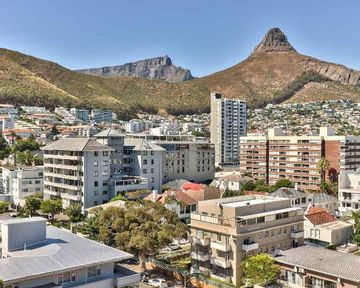How to go from property owner to first-time landlord
Want to rent out your property or invest in a rental? The Seeff Property Group says going from property owner to landlord requires legal and operational know-how.
While a private individual renting out their own property or an Airbnb unit does not need to register with the Property Practitioner’s Regulatory Authority, they must comply with rental, consumer, and tax laws. The rental income must be declared as part of your annual income, but you can deduct valid expenses incurred in connection with the rental.
Seeff provides some guidance for beginner landlords:
- Treat the property as a business. Approach the rental in a business-like manner and ensure the property is fit for rental purposes and well maintained. While an Airbnb unit may require extras, keep the property basic for an ordinary residential purpose. More “frills” do not equal a higher rental
- Understand the law. The Rental Housing and Amendment Acts apply as well as the CPA (Consumer Protection Act). Important legalities include providing a written lease with a start and end date, rental amount, payment details, use of property and conditions around default or breach.
- Rental deposit and termination. The deposit must be invested in an interest bearing account and cannot be used for anything during the lease. It must be refunded seven days after the end of the lease. Under the CPA, the tenant can cancel giving 20-days’ notice, subject to a cancellation fee.
- Properly screen tenants. A proper credit and background check is vital before the tenant takes occupation. Using a rental agent can assist with this as agents are skilled and experienced. Be careful of “stories” and keep it professional. It is difficult and costly to evict, so take extra care upfront.
- Do not overcharge on the rental. Keep your rate competitive to minimise vacancies and losing money. A high rental may result in the tenant eventually moving to cheaper accommodation. Take care when tenants pay in advance for a period, they often don’t pay again, and it turns into an eviction nightmare.
- Who pays for what? Aside from the rent, the tenant pays for the use of utilities such as water, electricity and refuse. Property taxes and levies are for the account of the property owner or landlord. The same applies to any special levies.
- Property use and conduct rules. Include these in the lease and focus on aspects such as pets, noise, visitors, maintenance, and circumstances which can lead to eviction. Sectional title and estate conduct rules must be attached to the lease and the tenant made aware including use of communal space.
- Inspect and maintain. A property condition report must be attached to the lease. This requires inspection by the landlord (or agent) and tenant, and signed by both. An outgoing inspection is necessary to agree on repairs and the cost which can be deducted from the deposit.
- Written records. You must maintain written records of all transactions pertaining to the lease including rent collected as well as expenses for maintenance and other incidentals for tax deduction purposes. Verifiable records are required should SARS call for any proof.
- Hire a rental agent/property manager. Rentals are complex with many legislative pitfalls. It requires hands-on management often best done by a professional. What you will pay to a rental agent or property manager may well be worth the money spent as they are property professionals whose business it is to know rentals, how to screen tenants and manage rental property to ensure your asset is looked after and you can maximise the return on your investment.
More Market & Opinion articles
Savvy home buyers can capitalise on the current interest rate cycle
18 Apr 2024
Buying the right kind of residential property in the right location and at the right time in an interest rate cycle, are key ingredients for extremely sound investment potential.
read more

